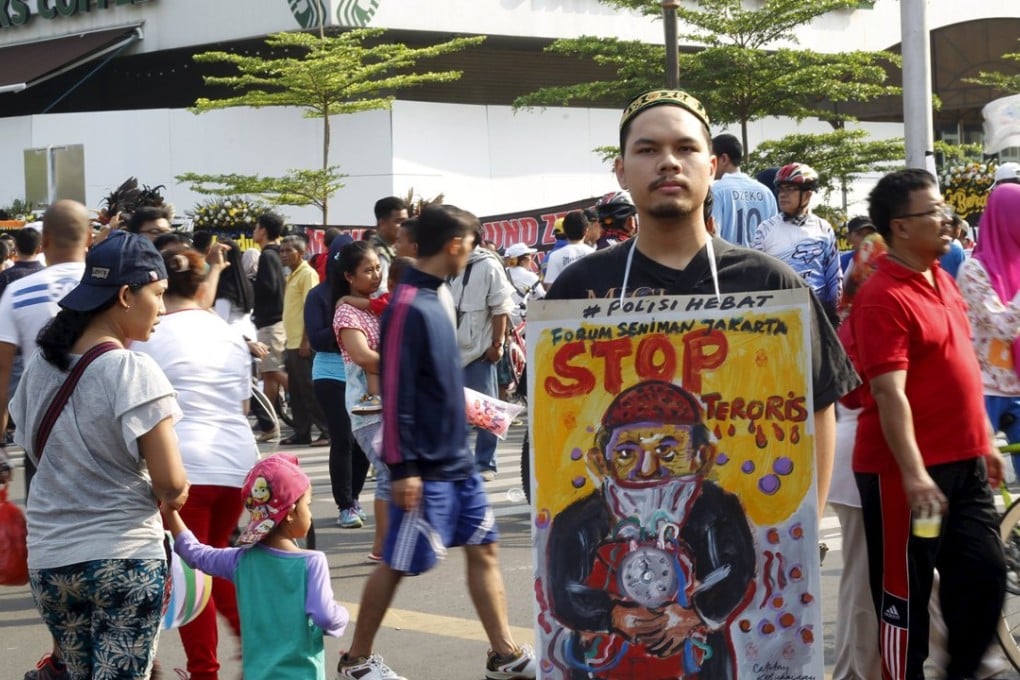Jakarta attack highlights expanding jihadist threat but leadership struggle remains obstacle to even greater influence
Islamic State has accepted allegiances from jihadis in Nigeria, Egypt, Libya, Algeria, Afghanistan, Pakistan, Yemen and Saudi Arabia but has yet to formally recognise any radical groups in Southeast Asia.

Last week’s attack on Jakarta showed for the first time that Islamic State (IS) violence has arrived in Indonesia, but security experts believe the radical group’s footprint is still light because militants are jostling to be its regional leader.
Police have identified Bahrun Naim, an Indonesian based in Syria, as the mastermind of the blitz of bombings and gunfire that left all five attackers and two civilians dead on Thursday. But perhaps the region’s most influential jihadi is a jailed cleric, Aman Abdurrahman, who with just a few couriers and cell phones is able to command around 200 followers from behind bars.
They want to internalise the conflicts in Indonesia so they can bring more people from the outside
He sits at the head of Jamaah Ansharut Daulah, an umbrella organisation formed last year through an alliance of splinter groups that security experts believe could become the unifying force for IS supporters.
“They want to internalise the conflicts in Indonesia so they can bring more people from the outside,” said Rakyan Adibrata, a Jakarta-based terrorism expert who advises parliament, referring to the militants who have joined forces under one banner.
“Just like Syria, you need to create a conflict zone very big that can be a magnet for all jihadis to come across the world to Indonesia to wage war. That's their main objective.”
Police believe that Naim, himself an Abdurrahman supporter, was trying to prove his leadership skills to IS’s leaders in Syria by plotting the Jakarta attack.
